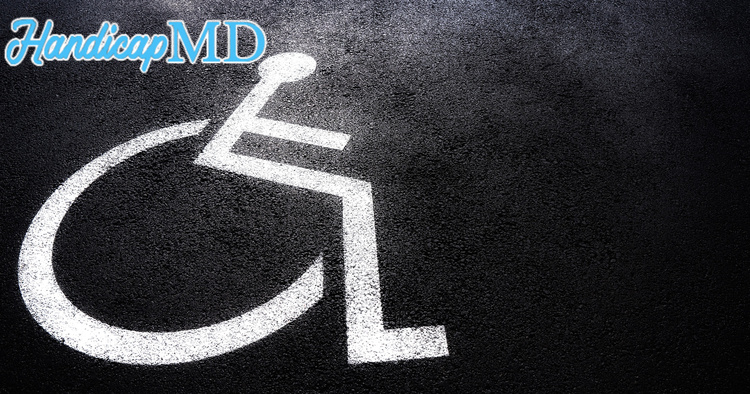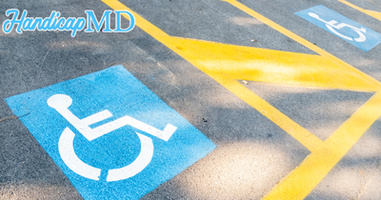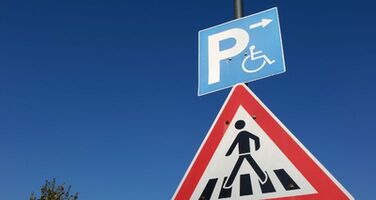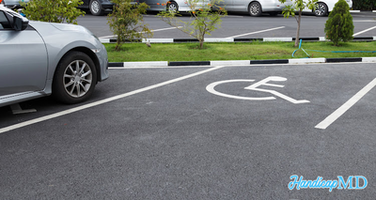
Myths vs. Facts: Debunking Common Misconceptions about Handicap Placards in Nevada
Introduction
Handicap placards are an essential part of ensuring accessibility and convenience for individuals with disabilities. However, there are several misconceptions surrounding these placards, especially in the state of NV. In this detailed article, we will debunk common myths and provide you with accurate, up-to-date information regarding handicap placards in Nevada.
Understanding Disability Placards
Handicap placards, also known as disabled parking permits, are a crucial resource designed to facilitate individuals with disabilities. They are intended to ensure that these individuals have easier access to public places, thereby promoting inclusivity and equal opportunities.
Eligibility for Handicap Permits
Misconception: Only individuals with permanent disabilities qualify for disability permits.
Fact: Permits are not exclusive to permanent disabilities. Temporary disabilities, such as injuries or surgeries, can also make someone eligible for a pass. The key is to have a qualified healthcare professional certify the disability and its duration.
Misuse of Disability Placards
Misconception: Borrowing someone else's pass for convenience is harmless.
Fact: Misusing permits is not only illegal but also highly unethical. These are issued for specific individuals and are not transferable. Using someone else's without authorization is a punishable offense that can lead to fines and legal consequences.
Applying for a Disability Placard
Length of the Application Process
Misconception: Applying for a disability pass is a lengthy and complicated process.
Fact: The process of applying for a handicap permit in Nevada is relatively straightforward. It involves filling out an application form, providing medical certification, and submitting the necessary documents to the Department of Motor Vehicles (DMV). The DMV typically processes these applications efficiently.
Proper Use of Handicap Placards
Reserved Parking Spaces
Misconception: Handicap passes only grant access to designated parking spaces.
Fact: While passes do grant access to designated parking spaces, they also provide other benefits. These may include exemptions from certain parking fees and extended parking durations in metered spaces. It's essential to read the specific regulations in NV to maximize the benefits of your placard.
Myth: Placards Are Only for Wheelchair Users
The Reality: Passes Serve a Range of Disabilities
Contrary to popular belief, passes aren't exclusive to individuals who use wheelchairs. Nevada's Department of Motor Vehicles (DMV) issues these to individuals with various mobility challenges. These include those with heart conditions, respiratory issues, or severe arthritis, among others. If your disability affects your ability to walk or necessitates accessible parking, you may qualify.
Myth: Getting a Placard Is a Hassle
The Reality: The Process Is Simplified
Obtaining a handicap pass in NV is more straightforward than you might think. The application process has been streamlined to ensure accessibility for those in need. You can easily apply for one through the DMV's website or visit your local DMV office. The requirements are clear, and the application itself is not as daunting as some may believe.
Myth: Handicap Placards Are Forever
The Reality: Passes Have Expiry Dates
Another common misconception is that once you have a handicap pass, it's yours for life. In reality, Nevada passes come with expiry dates. Temporary ones are valid for up to six months, while permanent ones typically need renewal every four years. This system helps ensure that these are distributed to those who genuinely require them.
Myth: Borrowing Someone Else's Pass Is Harmless
The Reality: It's Illegal and Unethical
Some people believe that borrowing someone else's permit for convenience is a minor offense. In truth, this is both illegal and unethical. Misusing a permit deprives individuals with legitimate disabilities of the accessible parking they need. Penalties for such actions can be severe, including fines and loss of driving privileges.
Myth: Handicap Permits Are Not Enforced
The Reality: Enforcement Is Vigilant
Nevada takes disability permit enforcement seriously. Law enforcement officers regularly monitor parking spaces designated for individuals with disabilities. If they discover any misuse or fraudulent activity, they won't hesitate to take appropriate action. So, it's crucial to respect the rules and regulations surrounding disability passes.
Commonly Asked Questions (FAQs)
What are the requirements for obtaining a disability permit in NV?
To qualify for a disability permit in Nevada, you must have a qualifying disability, such as limited mobility. The specific requirements can be found on the NV Department of Motor Vehicles (DMV) website.
How long does it take to process a disability pass application?
The processing time for a pass application in Nevada typically takes 7-10 business days. It's advisable to apply well in advance to ensure you have the pass when you need it.
Can I use my NV permit in other states?
Yes, Nevada handicap permits are recognized in other states. However, it's essential to familiarize yourself with the parking regulations of the state you're visiting.
What is the validity period of a disability pass in NV?
Permanent handicap placards in Nevada are valid for four years, while temporary ones are valid for six months.
Is it legal to lend my handicap pass to someone else?
No, it is illegal to lend your pass to someone else for their use. This is meant for the exclusive use of the person to whom it was issued.
What should I do if my disability permit is stolen?
If your handicap permit is stolen, report the theft to the local authorities and apply for a replacement through the NV DMV.
How do I report the misuse of disability passes?
If you witness the misuse of a disability permit, you can report it to the NV DMV or local law enforcement. Your actions can help maintain the integrity of accessible parking.
Conclusion
In this comprehensive article, we have debunked common myths and provided valuable insights into handicap placards in Nevada. It is essential to have accurate information about these permits to ensure they are used responsibly and for their intended purpose – facilitating accessibility for individuals with disabilities.
.png)






